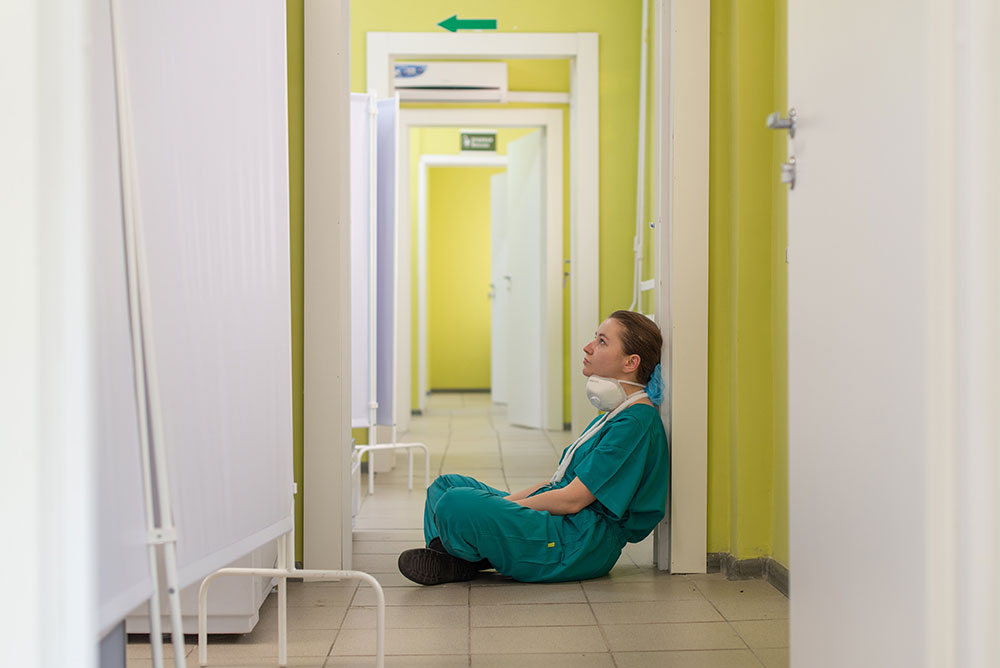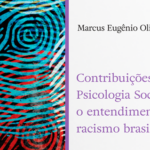Liliana Sousa, Specialist Nurse, Emergency Department of the Centro Hospitalar e Universitário de Coimbra, Portugal.
Eduardo Santos, Adjunct Professor, Escola Superior de Saúde do Instituto Politécnico de Viseu, Portugal. Core Staff of the Portugal Centre for Evidence Based Practice: a JBI Centre of Excellence. Integrated Researcher at the Health Sciences Research Unit: Nursing, Nursing School of Coimbra, Portugal.
Madalena Cunha, Coordinating Professor at the Escola Superior de Saúde do Instituto Politécnico de Viseu, Portugal. Integrated Researcher at the Health Sciences Research Unit: Nursing, Nursing School of Coimbra, Portugal.
 In view of the profusion of studies on the prevalence of psychological and mental health outcomes of health professionals who treat COVID-19 patients, researchers from the Health Sciences Research Unit: Nursing and nurses from the Centro Hospitalar e Universitário de Coimbra synthesized these results by conducting a systematic review of prevalence with meta-analysis.
In view of the profusion of studies on the prevalence of psychological and mental health outcomes of health professionals who treat COVID-19 patients, researchers from the Health Sciences Research Unit: Nursing and nurses from the Centro Hospitalar e Universitário de Coimbra synthesized these results by conducting a systematic review of prevalence with meta-analysis.
For this purpose, the article published in the journal Acta Paulista de Enfermagem and entitled “The psychological impact of COVID-19 on health professionals: systematic review of prevalence” studied the psychological impacts suffered by health professionals directly involved with COVID-19 patients.
In the study search, 38,657 records were identified. After the reading and careful selection through a systematic process, only five studies were included. The statistical analysis (meta-analysis) of the findings allowed the conclusion that the COVID-19 pandemic has a very significant psychological impact on health professionals with important prevalence of depression (27.5%), anxiety (26.8%), insomnia (35.8%) and stress (51.9%). Additionally, in three of the studies included, health professionals reported equally important levels of vicarious trauma, post-traumatic stress, somatization, and obsessive-compulsive symptoms.

Image: Unsplash
We have recently followed health professionals’ reports in the media that portray this problem, expressing their individual concern and in particular, reinforcing that “frontline” health professionals are a particularly vulnerable population and deserve special attention/intervention.
The study is important because it systematized in prevalence, so far “hidden”, the various symptoms of psychological impacts, from which the possibility of implementing strategies to minimize their occurrence is shown.
The study results bring new challenges, since the implementation of psychological interventions must be made widely available and proactively promoted as a means of protecting this essential workforce, thereby ensuring that they can continue to meet the strenuous demands imposed on them for the benefit of public health.
This study was financed by National Funds through the FCT – Fundação para a Ciência e a Tecnologia, I.P., under project INVEST Refª: fab8899e-5c94-4c33-9807-f54cdc93b053 and project Refª UIDB/00742/2020. The authors were supported by the Health Sciences Research Unit: Nursing and the Instituto Politécnico de Viseu.
External Link(s)
Acta Paulista de Enfermagem – APE: https://www.scielo.br/ape
To read the article, access
SOUSA, L., et al. Impacto psicológico da COVID-19 nos profissionais de saúde: revisão sistemática de prevalência. Acta Paulista de Enfermagem [online]. 2021, v. 34, eAPE003775 [viewed 15 December 2021]. https://doi.org/10.37689/acta-ape/2021AR03775. Available from: https://www.scielo.br/j/ape/a/xN45K97vHkRN6yB7MSSdsXm/
Como citar este post [ISO 690/2010]:


















Recent Comments